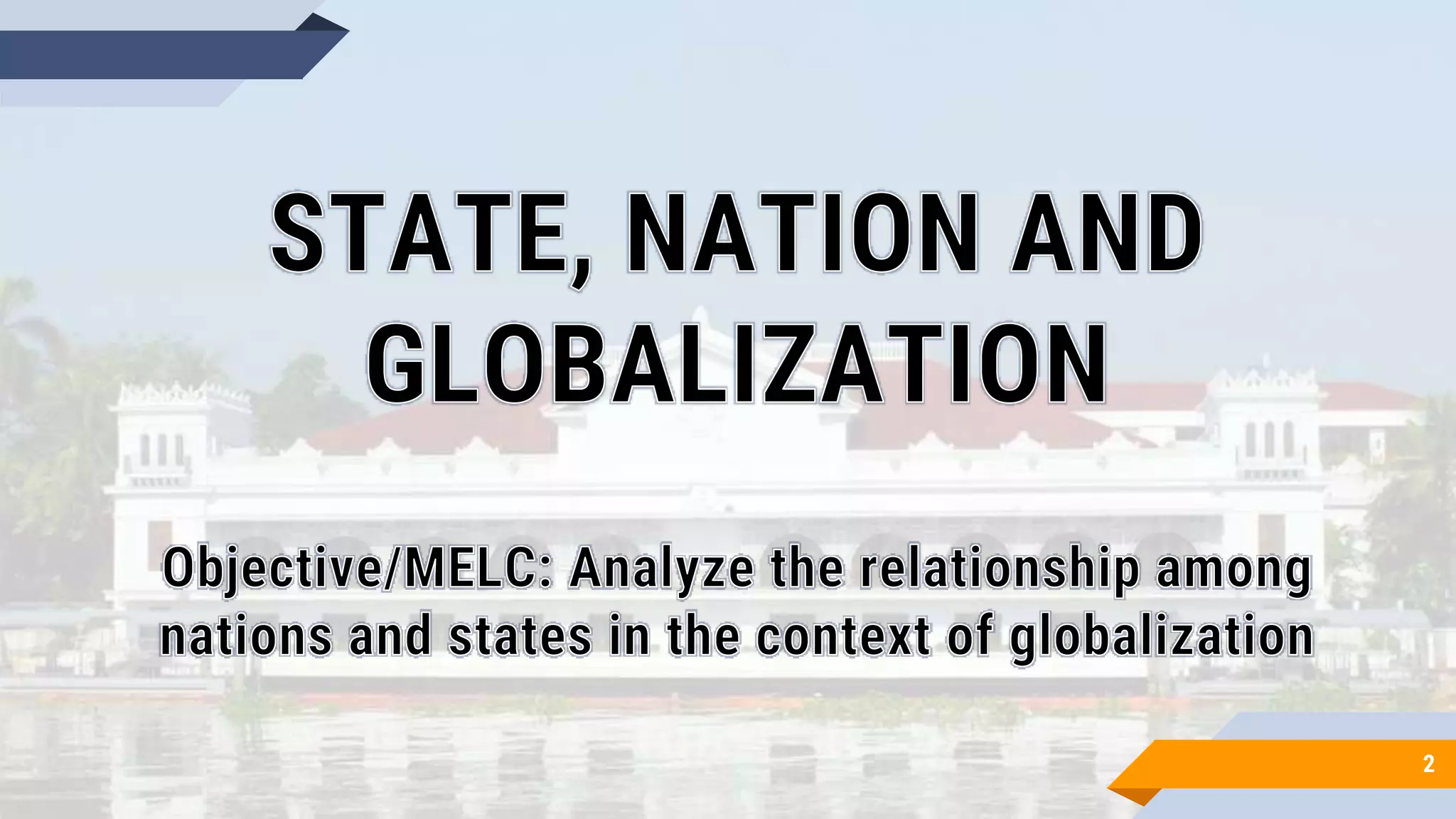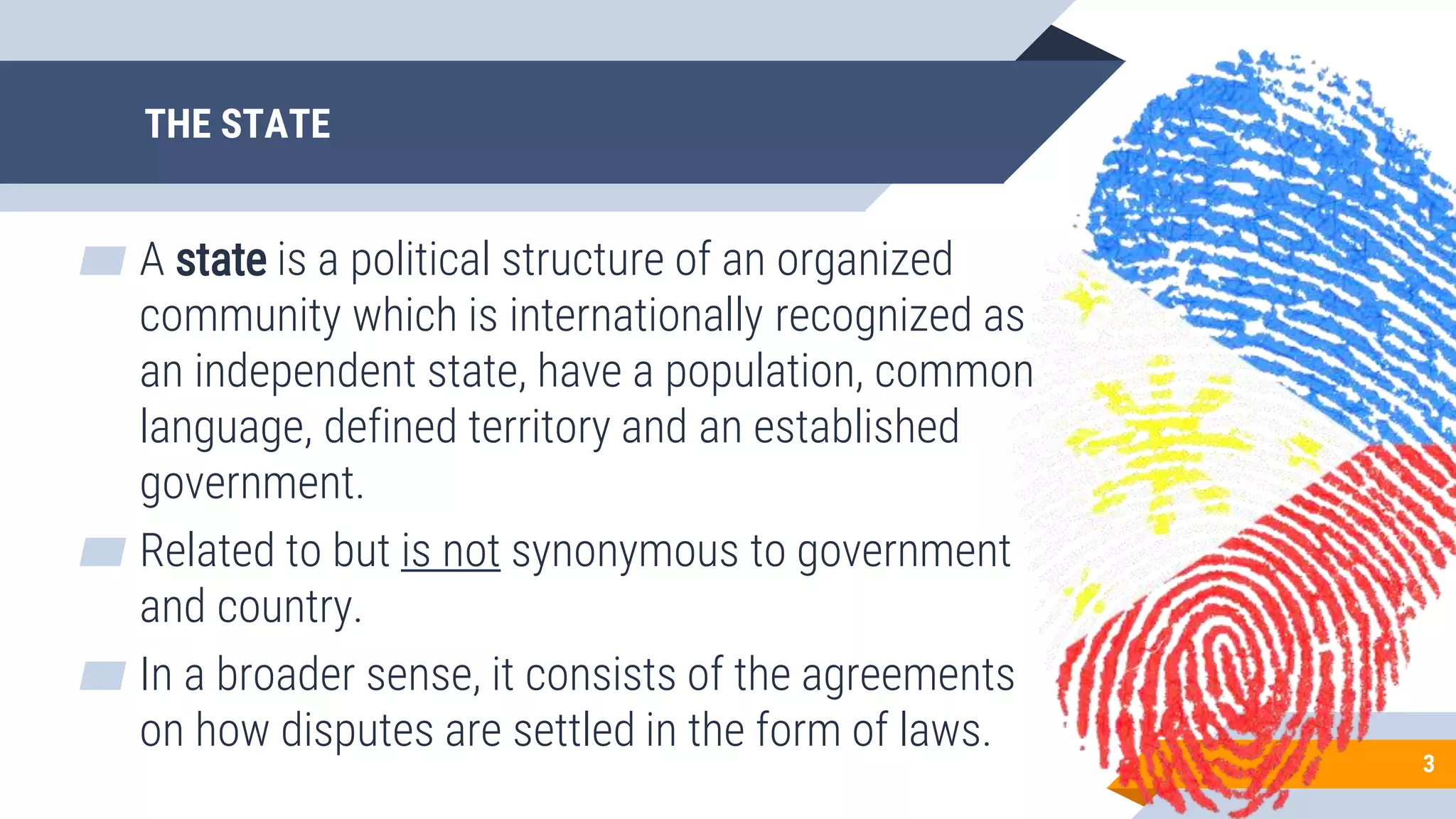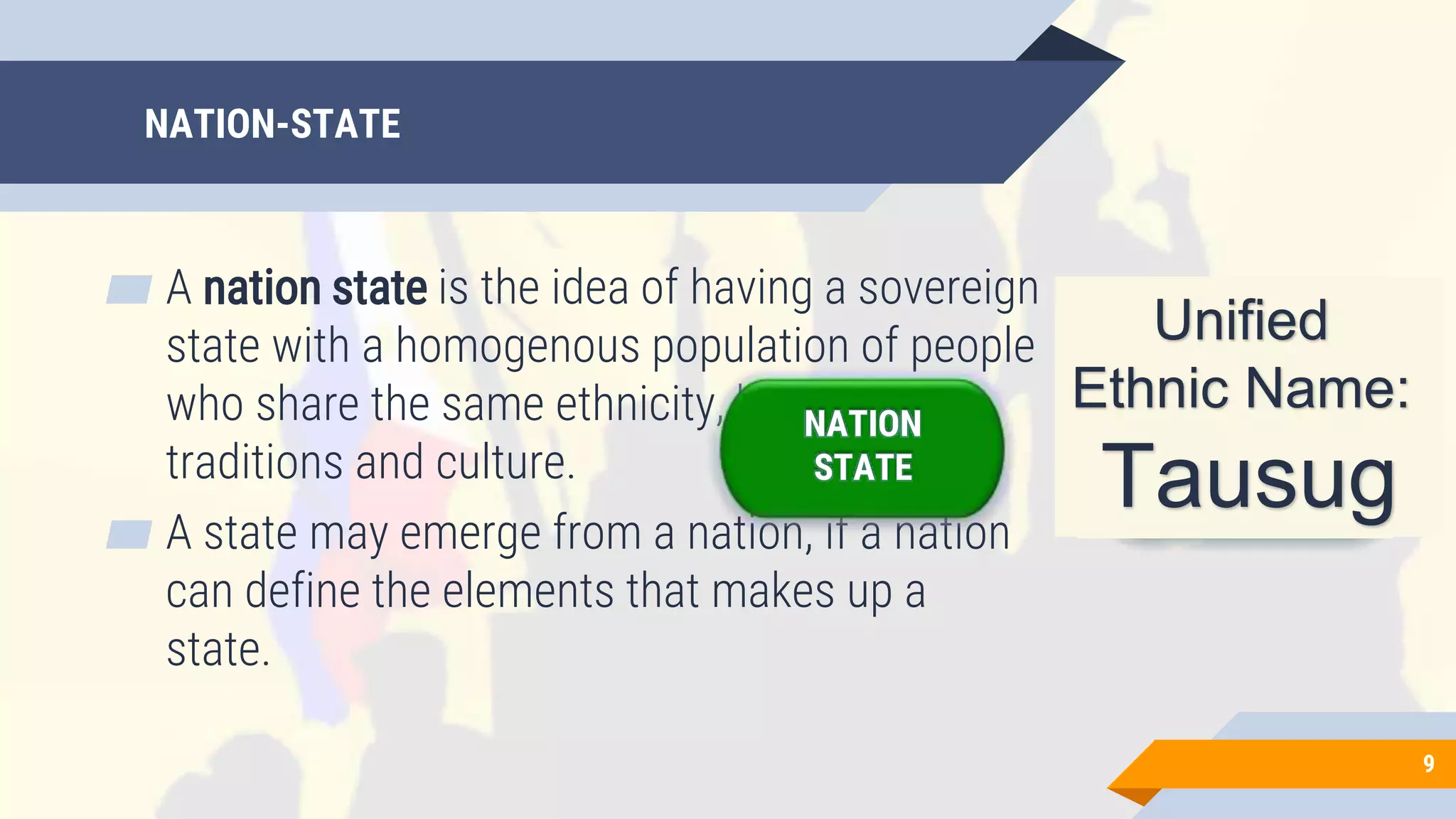The document discusses the concept of a state, defining it as a politically organized community recognized internationally, comprising elements like population, territory, government, and sovereignty. It highlights the relationship between sovereignty and the legitimacy of a state, stressing that legitimacy is crucial for a state's authority and is recognized both internally by its citizens and externally by other nations. Additionally, the document addresses globalization's impact on nation-states, emphasizing cultural, political, and economic integration among nations.












